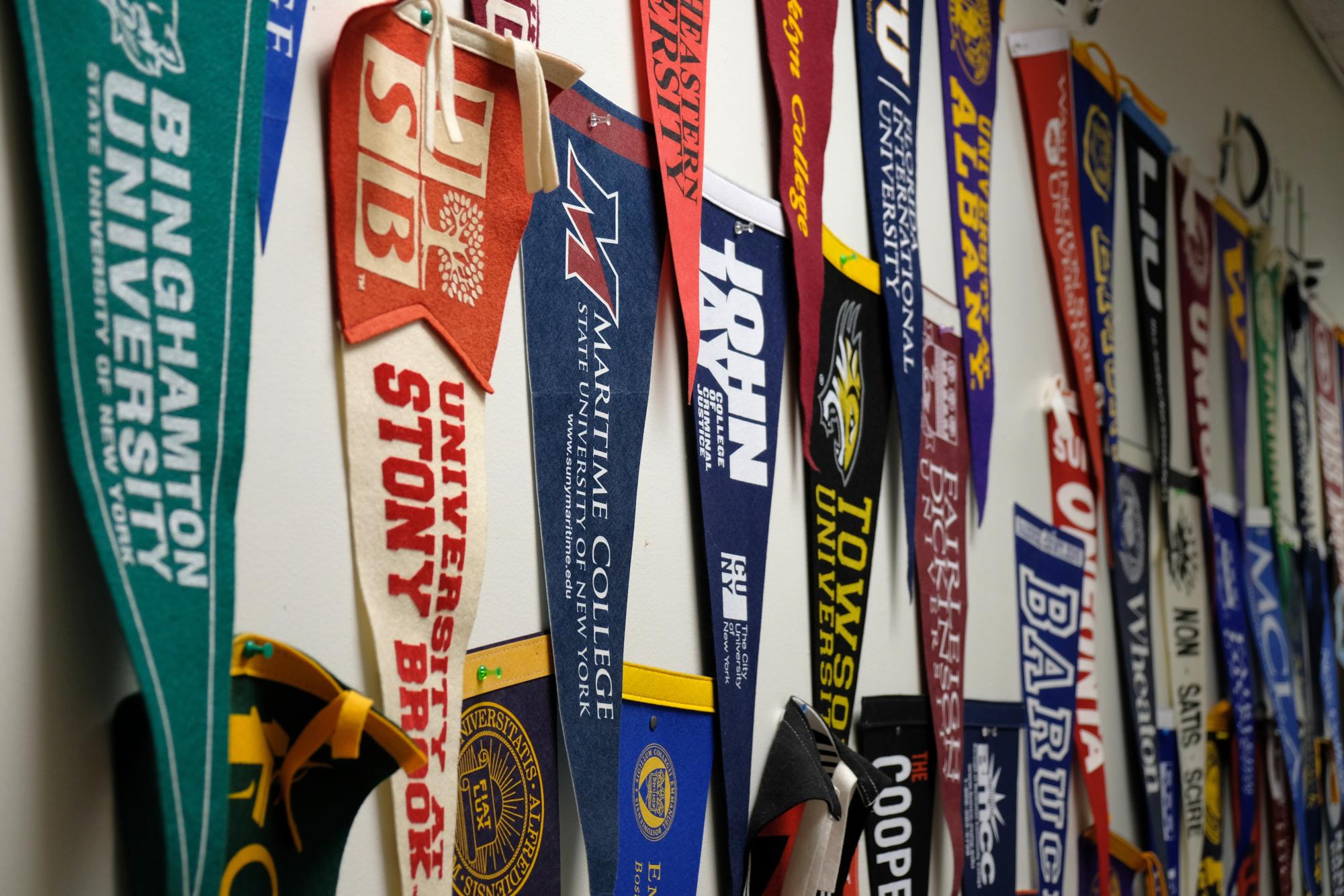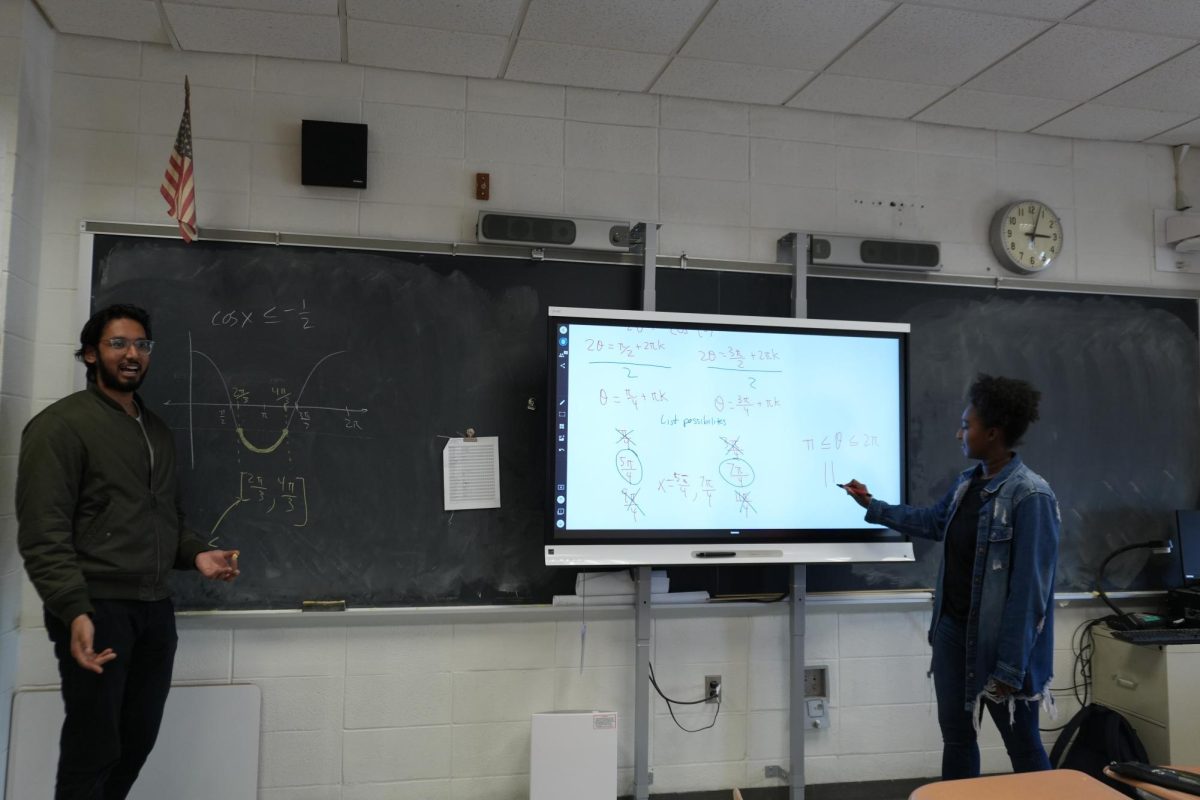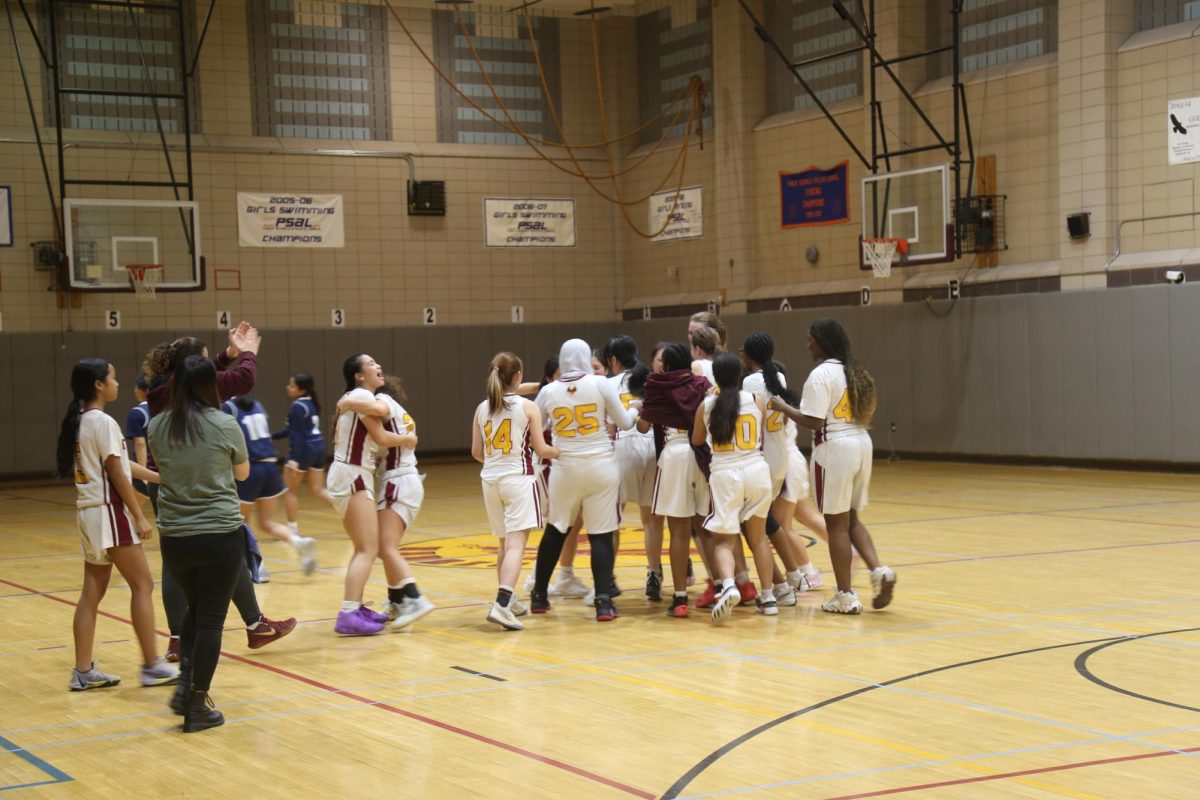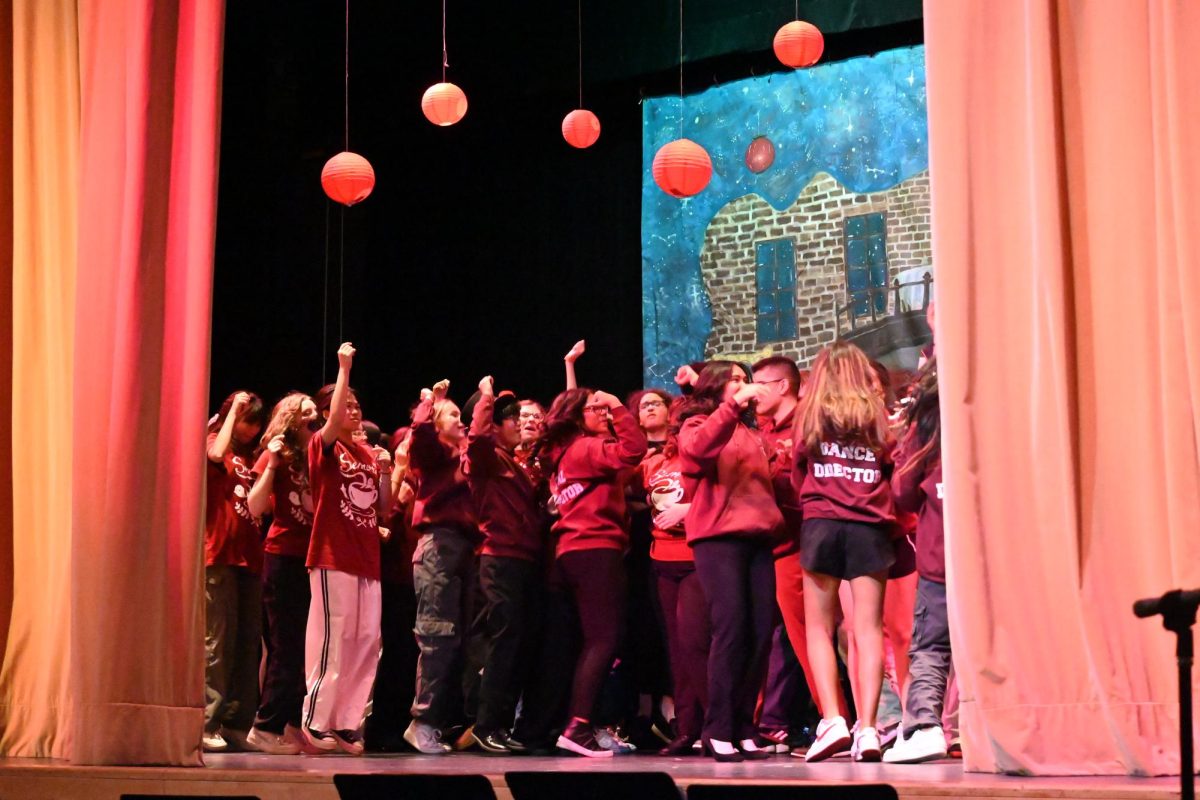
Last June, the United States Supreme Court ruled to end the use of Affirmative Action in college admissions. With a vote of 6-3, the court’s decision effectively upended over 50 years of precedent established in prior Supreme Court rulings, making it unlawful for colleges to consider an applicant’s race while reviewing their application. In the past few months, many seniors finished applying to colleges during an application season filled with uncertainty.
The COVID-19 pandemic had already ushered in an era of change in college admissions processes. For many, the “standard” part of standardized testing became less reliable as major universities instituted test-optional policies, largely due to the difficulty of indoor test-taking during a global pandemic and in part due to criticism of the reliability of standardized exams — particularly with regard to the potential for racial biases. Yet few admissions cycles have come with as much variability as this past cycle, particularly for students at a diverse school like Townsend Harris High School. The overturning of Affirmative Action brought with it a tidal wave of supplemental essays asking students to speak about their communities, their lived experiences, and their challenges. If test-optional policies challenged applicants to decide what not to include in an application, these essay prompts challenged students to decide how much detail to include about their cultural and racial identities.
Senior and president of the Black Excellence Club, Madyson Middleton said she wished that THHS did a better job at informing students about these changes and how they should shape their application to better account for them. “I don’t think that guidance or [the] administration has talked about the changes to Affirmative Action enough. I feel as if during a previous senior meeting, sitting us down and clarifying some of the misconceptions about the way affirmative action works, or worked, would’ve been very beneficial to not just Black and Brown students but everyone,” said Madyson.
However, guidance counselors are not necessarily trained in how to respond to the ripple effects that the recent ruling will have across admissions policies for the wide variety of schools that THHS students hope to attend.
Guidance counselor Jeremy Wang said that guidance counselors have been explaining the implications of the SCOTUS decision to students, but “since this is the beginning of the first college application cycle after the Supreme Court decision, we do not know how much the college application will be impacted by the decision.”
In the absence of that information, Mr. Wang said that he continues to encourage his students to apply to their dream colleges and to “keep their college list diverse on the basis of selectivity, affordability, and distance from home.” He said THHS guidance counselors have also encouraged students “to reach out to individual colleges regarding the college’s policies.”
Knowing that guidance counselors didn’t necessarily have all the answers, seniors have had to make important decisions on how to handle some key changes to the application itself and have had to process for themselves what they think about an explosive political topic that might significantly impact their lives.
I: What happened when the Chief Justice of the Supreme Court assigned an essay to seniors across America
Following the court’s ruling, many colleges began requiring supplemental essays on applicants’ backgrounds and experiences. For example, Harvard University asked applicants to respond to the following prompt: “Harvard has long recognized the importance of enrolling a diverse student body. How will the life experiences that shape who you are today enable you to contribute to Harvard?” This is a change from previous application prompts when the only two required questions asked students about their intellectual experience and extracurricular activities.
Cornell University now asks applicants to “explain how [their] life experiences will help inform [their] contributions to [Cornell].” Columbia University asks for an essay on how the student’s “perspective, viewpoint or lived experience” would “contribute to Columbia’s diverse and collaborative community.”
In the decision overturning Affirmative Action, Supreme Court Chief Justice John Roberts wrote, “Nothing in this opinion should be construed as prohibiting universities from considering an applicant’s discussion of how race affected his or her life, be it through discrimination, inspiration, or otherwise.”
That one sentence likely led to countless hours of supplemental essay writing for this year’s seniors, but according to interviews with multiple THHS seniors, there was no clear consensus on how to most effectively respond to these prompts.
Senior Tiffany Agbonwaneten said she chose to draw on aspects of her culture and race that she believes are an essential part of her identity. “[In my applications] I made sure not to just include those aspects of myself… I connected them to my life and my experiences, which was pretty easy since both of those things are so affected by those parts of my identity,” she said.
Another senior, Prisye Johnson, said that she was hesitant to mention aspects of her race in her supplement essays. She said, “I felt really skeptical about mentioning experiences relating to my racial identity in supplements, especially as a Black student. In the case made against Affirmative Action, we were essentially made to seem like freeloaders who used our race alone to gain entry to Ivies.”
One anonymous senior said that they believed speaking about their ethnic background wouldn’t benefit them when responding to those supplements. Instead, they discussed “giving back to people who are economically challenged” and connected those efforts to their own personal financial hardships.
Another anonymous senior student said that sharing their Asian American identity in supplemental essays was important to them. “I feel like sharing [my ethnic background] provided context to my identity because the whole point of a personal supplement is for colleges to to understand how you walk through life. I feel like my ethnic identity is a big part of who I am and how I navigate the world.”
This student also said that while applying to one specific school she initially chose not to describe her cultural background, but her teacher and college advisor urged her to reconsider. “My teacher, and even my college advisor, said that I should include my race as a part of my identity because of Affirmative Action going away. Schools still care and need a way to admit a diverse student body,” the student said.
Before stepping into her role as Interim Acting Assistant Principal of Pupil Personnel Services Jessica Graf said that while advising seniors through this year’s admissions process as a guidance counselor she urged students to consider talking about their race and ethnicity in supplemental essays. “I was explicit in telling [students] that if their racial, ethnic, or cultural identity was a significant part of their life experience that they could and should use that space to talk about it.”
While answering these prompts, some seniors took a different route and focused on different experiences outside of racial or cultural identities. Senior Anis Djerdjare said he wrote about his extracurricular activities while answering supplemental essays about community and identity. “I think I gravitated towards writing about my extracurricular because that takes up the bulk of my time,” he said. “Culture and background is important, but for me, I put extracurriculars first throughout my sophomore and junior year so that came natural for me while writing.”
Another anonymous student shared a similar experience. “I didn’t feel a strong connection to my culture and I thought I could provide a more unique perspective of who I was as a student through my extracurricular work,” the student said.
II: Judgments from peers following the overturning of Affirmative Action
Besides having to consider how to effectively discuss their own background in essays, students also have to handle how to talk to one another about this issue.
In 2021, a Black student from THHS who was accepted into Harvard wrote an opinion article for The Classic discussing how her fellow students speculated she only got into the Ivy League university because of Affirmative Action, rather than her merit and hard work. In the May 2016 print edition of The Classic another student published a similar opinion piece, writing: “Every time a minority student gains admittance to Ivy League or other top tier institutions, his entire academic and extracurricular profile essentially gets blacked out in a sea of negative reactions. Take a walk through the halls of Townsend Harris and listen to snippets of conversations such as, ‘She only got in because she’s black’ or ‘He wasn’t even that smart.’”
So long as Affirmative Action was in place, each year when college admissions results come out, students of color might expect the same accusations. Will students stop attributing an individual’s acceptance to diversity alone now that Affirmative Action is gone? Will the issue become less controversial as admission decisions come in, or will it get worse?
To see where students stand, The Classic conducted a survey of over 200 seniors and found the class of 2024 deeply divided on the issue. On the overall decision to overturn Affirmative Action, seniors are completely split: 50% agree with the decision and 50% disagree. White and Asian students were more likely to report that they agreed with the ruling, while Black and Hispanic students were less likely to agree with the court’s ruling.
About 83% of White students and 57% of Asian students said they believed the decision would positively impact their applications. However, 76% of Hispanic students and 65% of Black students said they believed these changes would negatively impact their chances of getting into their ‘top choice’ school.
When asked if they ever thought a Black or Brown senior in previous years got accepted to a prestigious college because of their race, approximately 70% of respondents said they never personally believed so. Many students however said that they have heard other students speculate that seniors from previous classes were admitted largely because of their race. With the overturning of Affirmative Action, the majority of respondents said that they believed that if a Black or Brown senior were to be accepted into a prestigious college today, it would likely not be because of their race.
“I think many students within the school were already against Affirmative Action,” Tiffany said. “[With Affirmative Action gone] maybe… they won’t see every black person as a diversity acceptance,” she said.
Since 1998, California has experienced the consequences of admitting students to top public universities (the UCs) without considering race as a factor in applications, after the state banned Affirmative Action in 1996. Studies show that the enrollment rate of Black and Brown students fell in the years after.
“What if come May, when the dust is settled, we learn that what happened in California happened across this country?” said Joe Latimer, former college admissions counselor and current director of college counseling at Northfield Mount Hermon. “Think about the sheer number of students of color that will not be sitting next to you where you go to college because of the number of them that have not been invited to the table.”
“There’s gonna be a seismic shift in accessibility and economic mobility,” Mr. Latimer told The Classic.
Tanya Odom is a THHS graduate who has been working as a consultant related to diversity, equity, and inclusion for 25 years. Ms. Odom told The Classic that she’s concerned about how the decision will play out this year.
“I worry that students who traditionally benefited from affirmative action will not think that they’ll get in someplace,” Ms. Odom said. “Affirmative action has done well at leveling the playing field, and I think one of the biggest concerns for me surrounding the decision is that we still have people who don’t believe in or understand the importance of diversity in the classroom.”
One student, who wishes to remain anonymous, said that they believe everything in the application process should be based on merit alone. “If that means less diversity, it will be for the better of education,” the student said.
Another anonymous senior at THHS said, “Even though I am Asian and my admission chances might improve because of this ruling, I support Affirmative Action. Diversity is essential to any educational institution because it allows the students there to share their differing perspectives, creating a greater sense of unity amongst a general community or even the country.”
Most seniors will know the full results of this year’s application process by the end of next week.









